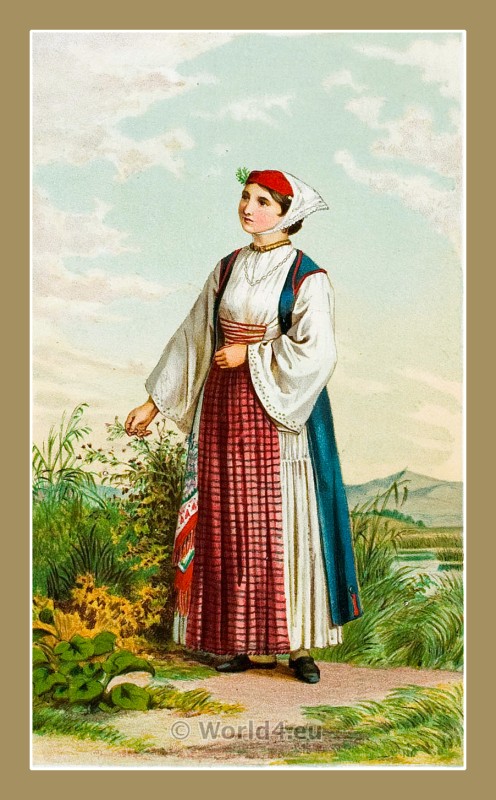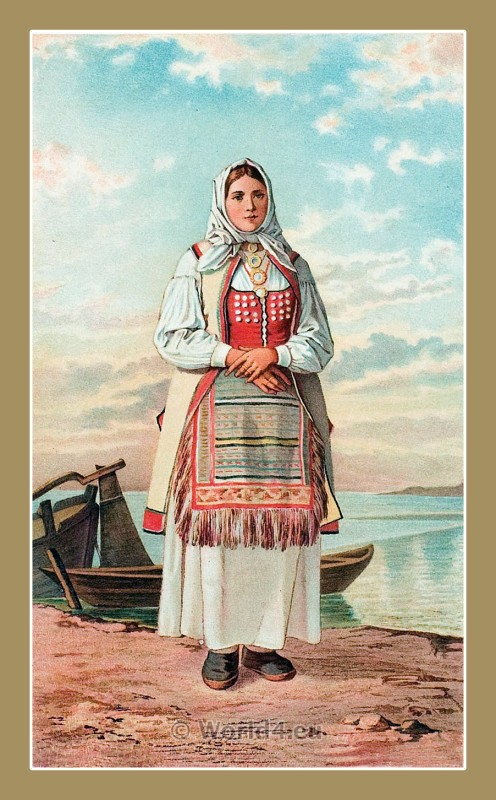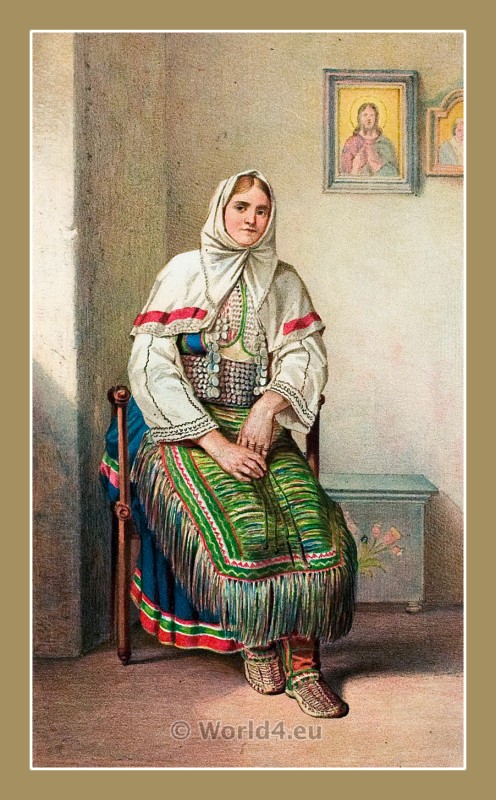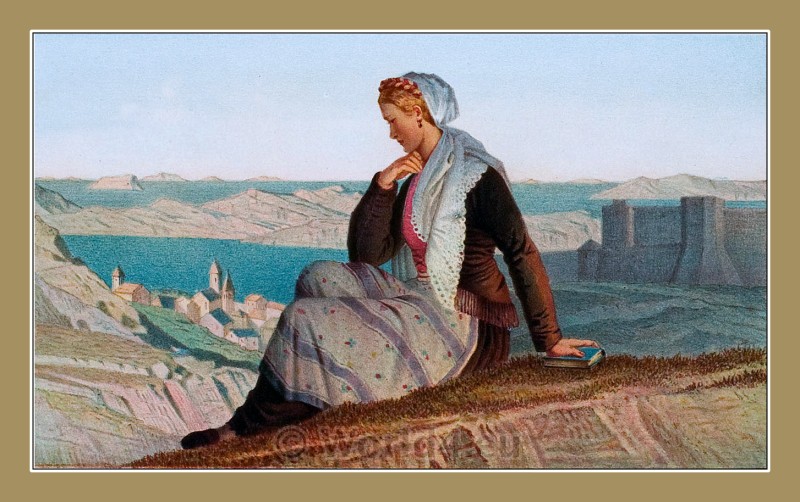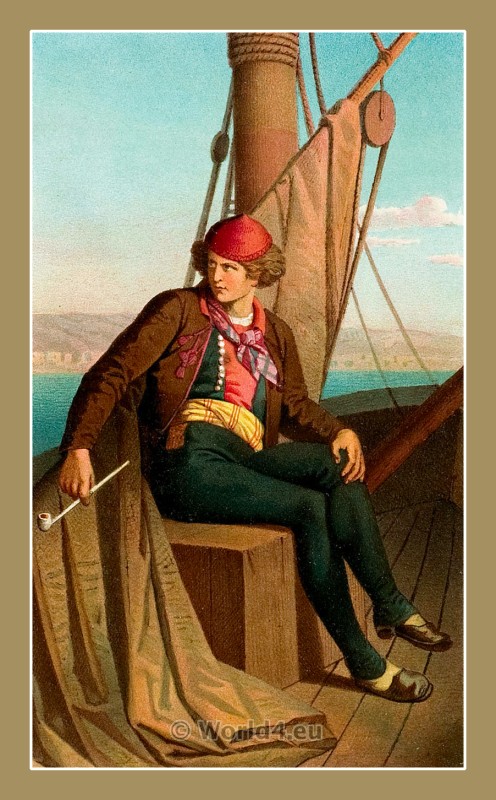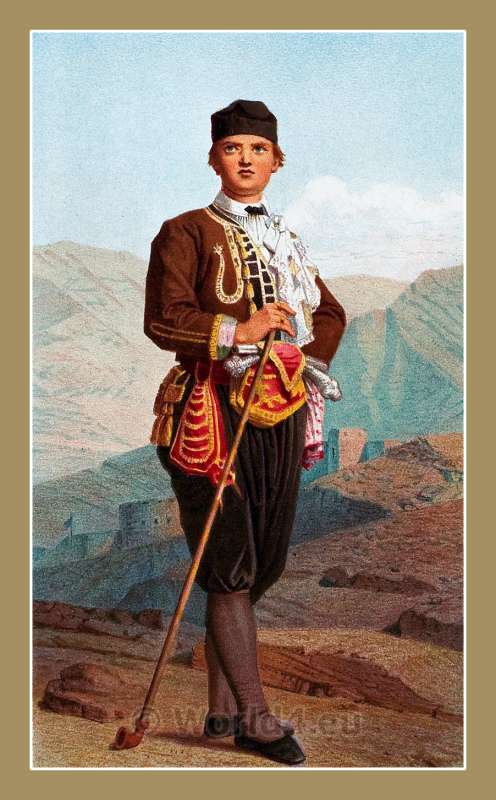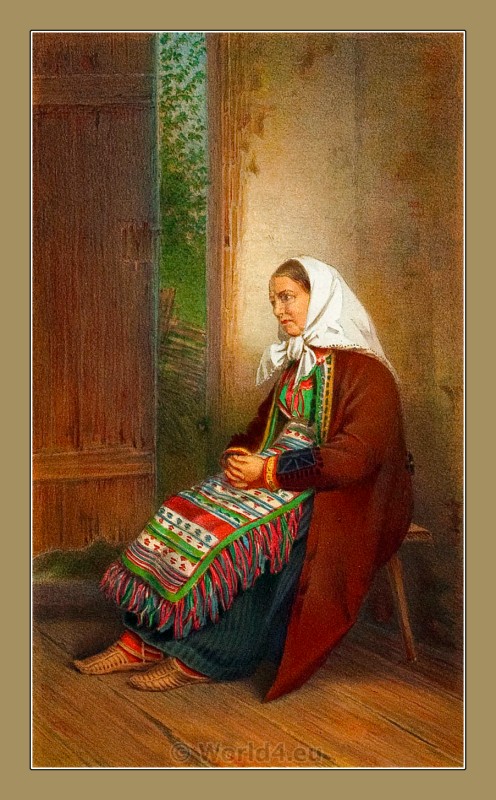
A woman in the traditional costume of Karlobag, Croatia in 1870.
Hrvatskih narodnih nošnji. (ŽENSKA NOŠNJA IZ KARLOBAGA).
Gallery: The Serbs in the Adriatic. Their types and costumes. Published 1870-1878. Brockhaus Leipzig Germany.
Discover more from World4 Costume Culture History
Subscribe to get the latest posts sent to your email.

